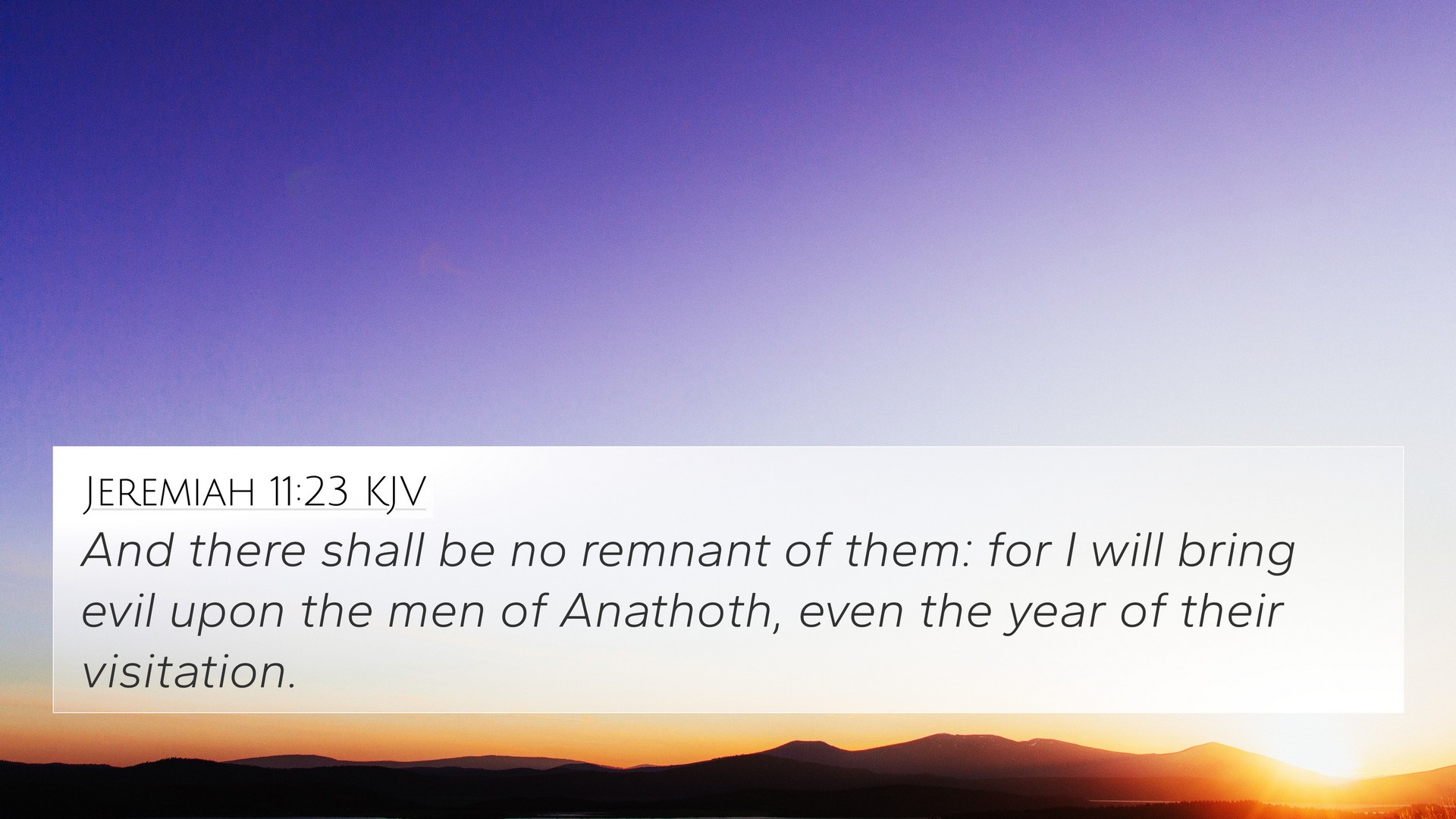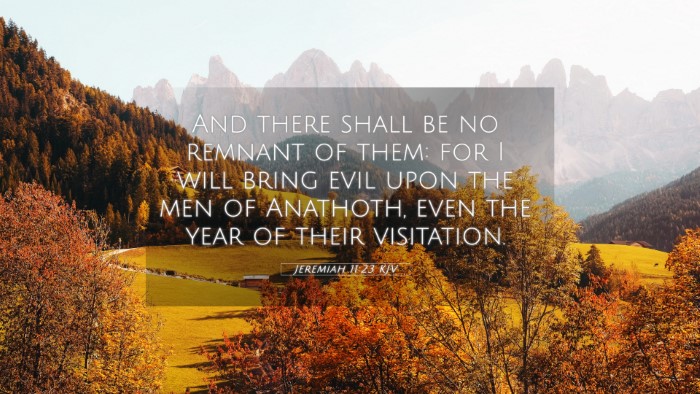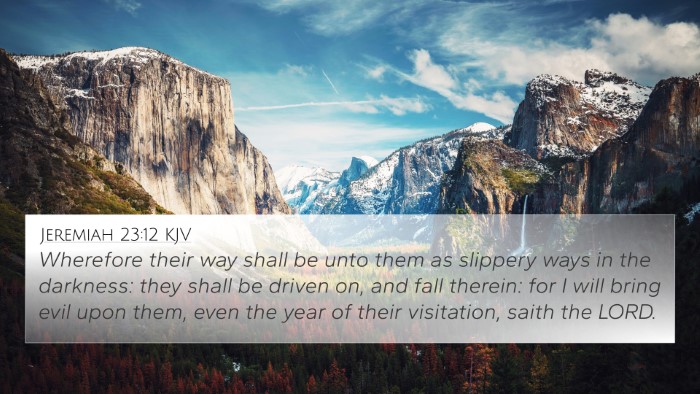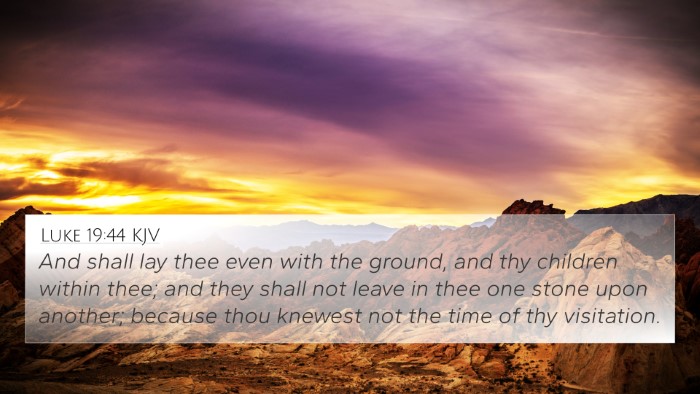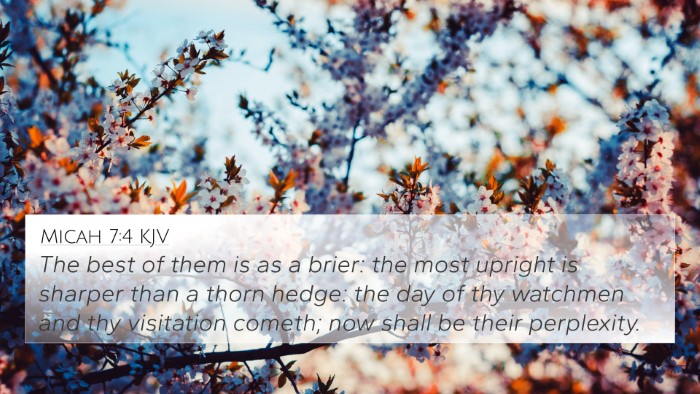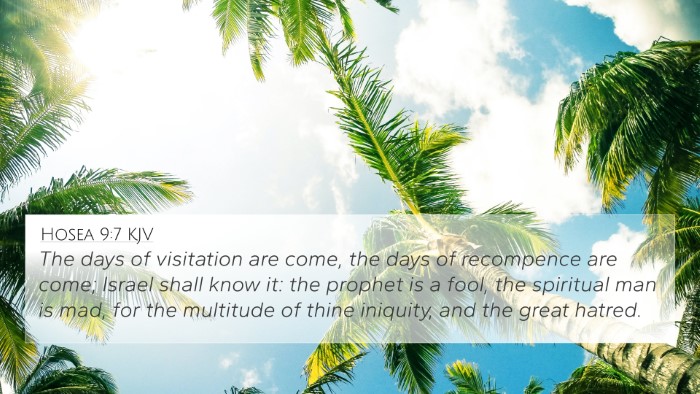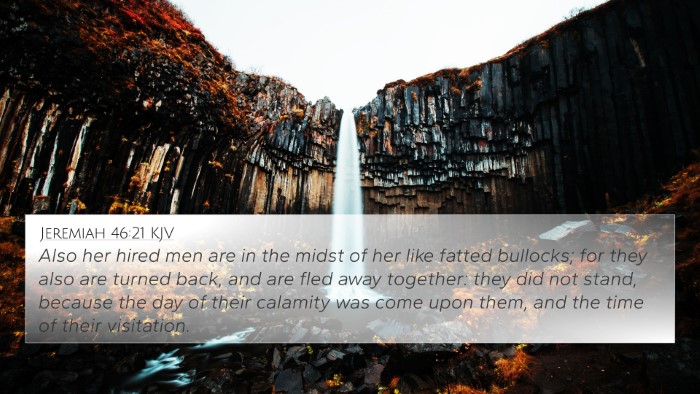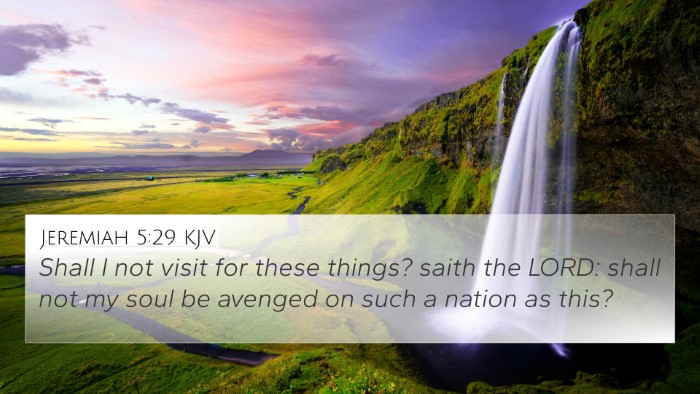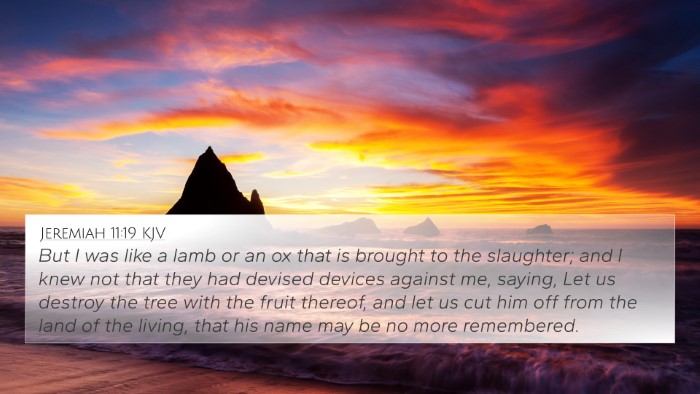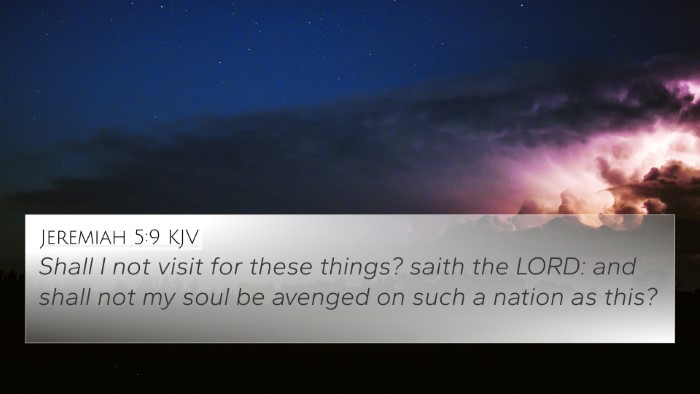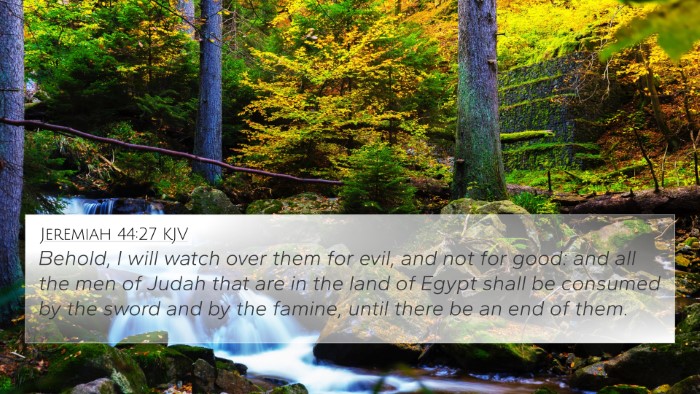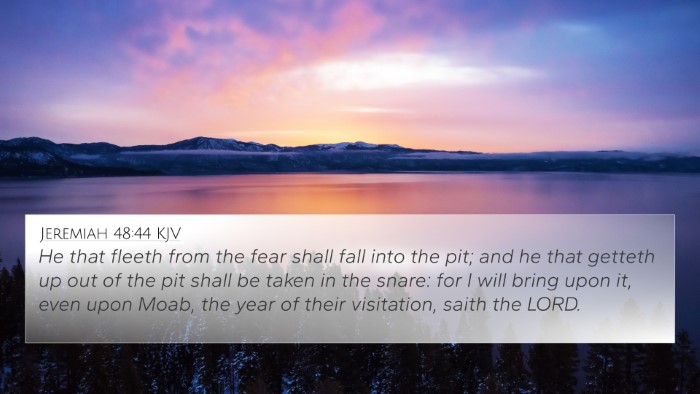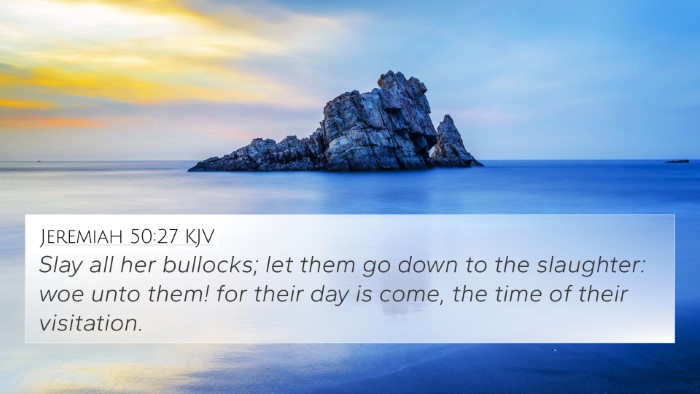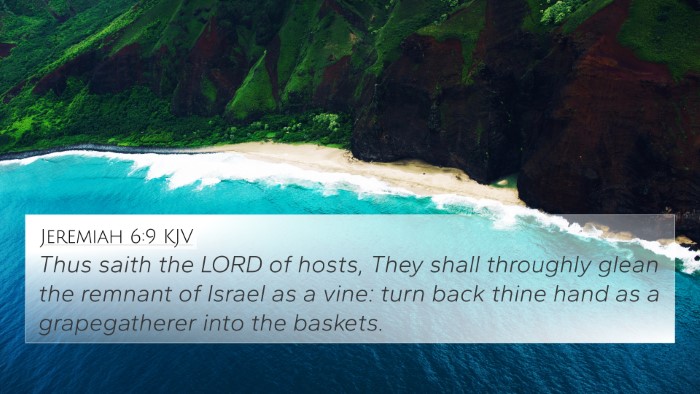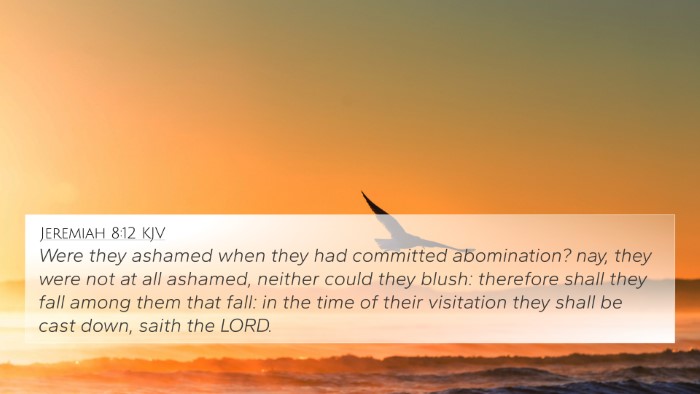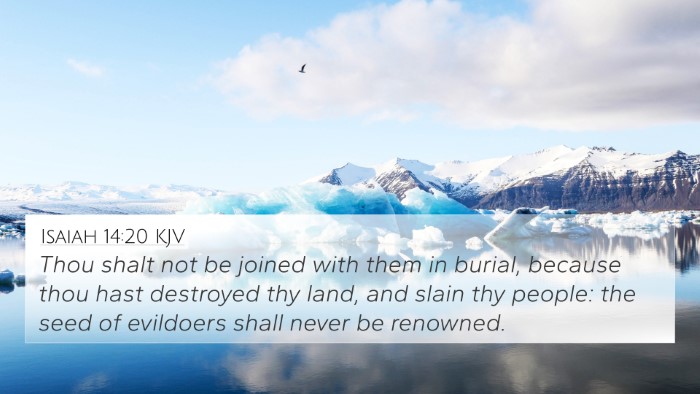Understanding Jeremiah 11:23
Jeremiah 11:23 states, "And death shall be chosen rather than life by all the residue of them that remain of this evil family, which remain in all the places whither I have driven them, saith the Lord of hosts." This verse depicts the dire consequence of disobedience and the stark choices faced by the remnants of the people of Israel, emphasizing their rejection of life and inclination towards death as a result of their persistent wickedness.
Commentary Insights
Insights drawn from notable public domain commentaries help provide a nuanced understanding of this verse:
-
Matthew Henry:
Henry emphasizes the moral decay of the people, illustrating their choice of death symbolizes spiritual death that results from unrepentant rebellion against God. He notes that such a choice encompasses the profound despair and hopelessness stemming from the loss of divine favor.
-
Albert Barnes:
Barnes elaborates on the consequences faced by the "evil family," signifying God's judgment upon those who persistently forsake His covenant. He asserts that their hearts have turned away from God so severely that remaining in spiritual exile feels preferable to seeking restoration.
-
Adam Clarke:
Clarke brings attention to the historical context of Israel's disobedience, explaining that the people had been driven into exile, and yet those remaining show no signs of returning to God. He highlights that the imagery used evokes a tragic end, where the choice of death reflects the ultimate rejection of God's promises.
Bible Verse Connections
This verse relates to several other scriptures, enhancing its meaning through thematic connections:
- Deuteronomy 30:19-20: God sets before His people life and death, urging them to choose life.
- Isaiah 65:12: Illustrates the destiny of those who reject God's call.
- Luke 14:26: Emphasizes the cost of discipleship, where one must prioritize Christ above all else.
- Romans 1:21-25: Discusses the futility of worshiping the created instead of the Creator, leading to depravity.
- Ezekiel 18:30-32: Calls for repentance and the choice to live contrasted against wickedness.
- Proverbs 8:36: Reminds that those who sin against God harm themselves.
- John 10:10: Jesus contrasts the thief who comes to steal and destroy with His purpose to give life abundantly.
- Galatians 6:8: Explains that those who sow to the flesh will reap corruption, contrasting with reaping eternal life.
- Revelation 21:8: Describes the fate of the unrepentant and their final judgment.
- John 12:25: Encourages the letting go of life to receive true life in Him.
Thematic Analysis
Several overarching themes emerge from this verse that reflect the larger Biblical narrative:
- Rebellion Against God: The consistent pattern of turning away from Yahweh's commands leads to severe consequences.
- Judgment and Restoration: God’s narrative often includes judgment but also offers restoration for those who repent.
- Lack of Hope: The extreme measure of choosing death speaks to profound despair in the absence of God’s light.
- Life vs. Death: The stark choice presented—life through obedience versus death through rebellion—underscores the essence of free will.
Utilizing Cross-References
When studying Jeremiah 11:23 in conjunction with other scriptures, utilizing a Bible concordance or a Bible cross-reference guide can greatly enhance comprehension. Consider these tools as part of your cross-reference Bible study approach:
- Explore thematic connections between verses that echo similar warnings and promises.
- Use a Bible reference resource to find related scriptures that might reflect on the consequences of disobedience.
- Identify the cross-referencing Bible study methods that work best for you.
Conclusion
Jeremiah 11:23 serves as a poignant reminder of the consequences of rejecting God's ways. By understanding its implications through commentaries and cross-references, believers can deepen their scriptural knowledge and apply the lessons of the verse in their lives.
